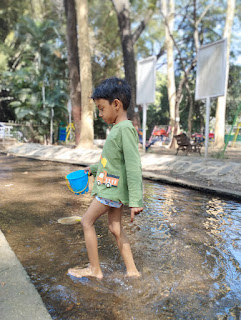Learning Unchained: Exploring the Pros and Cons of Homeschooling
Homeschooling, once considered an educational outlier, is rapidly gaining traction in India. Parents are increasingly drawn to its potential for personalized learning, strong family bonds, and nurturing individual talents. However, the decision to homeschool is not without its challenges and complexities.In a bustling nation like India, where educational landscapes are as diverse as its spices, a quiet revolution is brewing in homes across the country. Homeschooling, once considered an unconventional path, is gaining traction as parents seek alternative avenues for their children's education. Yet, the decision to homeschool carries within it a tapestry of interwoven advantages and disadvantages, necessitating a closer look before diving headfirst into this uncharted territory.
Pros: Tailored Learning and Nurturing Potential:
At the heart of homeschooling lies the promise of a custom-fit education. Unlike the one-size-fits-all approach of traditional schools, homeschooling allows parents to cater to their child's unique learning styles, interests, and pace. This flexibility can be a boon for gifted children who flourish when challenged beyond standard curriculums, or for those struggling with certain concepts who benefit from individualized attention.
Furthermore, homeschooling creates a fertile ground for nurturing individual talents and passions. A budding musician can dedicate more time to honing their craft, while a science enthusiast can delve deeper into the intricacies of the universe, unhindered by the limitations of a fixed timetable. This fostering of intrinsic motivation and curiosity lays the foundation for lifelong learning.
Building Bonds and Cultivating Values:
Beyond academics, homeschooling offers a unique opportunity to strengthen family bonds and instill values into children. Sharing the learning journey fosters closer relationships, allowing parents to witness their children's strengths and vulnerabilities firsthand. This creates a platform for open communication, guiding conversations on sensitive topics like morality, ethics, and social responsibility.
Moreover, homeschooling enables families to integrate cultural and religious values into their children's education seamlessly. This can be particularly appealing to those belonging to communities with distinct traditions or those seeking an education grounded in faith.
Challenges and Risks: Socialization and Academic Concerns:
However, alongside these advantages, homeschooling also presents potential challenges. One of the primary concerns revolves around social development. Critics argue that children might miss out on the crucial social interactions and peer relationships forged in traditional school settings. This could lead to difficulties with interpersonal skills, teamwork, and navigating diverse social settings in later life.
Furthermore, academic rigor and standardization are often cited as concerns. Ensuring a well-rounded education encompassing core subjects and various disciplines requires meticulous planning and organization from parents. Access to qualified tutors, laboratory facilities, and standardized assessments can also pose practical difficulties, depending on individual resources and location.
Navigating the Legal Landscape and Building Support:
Homeschooling in India still operates in a somewhat grey area, lacking a comprehensive legal framework. While several states have acknowledged its existence, regulations and guidelines vary considerably. Navigating this complex legal landscape can be daunting for parents, requiring research and expert guidance to ensure compliance.
Finally, embarking on the homeschooling journey often requires significant dedication and support. Parents might need to adjust their personal and professional lives to accommodate their children's learning needs. Building a network of other homeschooling families or communities can provide invaluable support, sharing resources, experiences, and tips for navigating this unique path.
Conclusion: A Choice Steeped in Responsibility and Purpose:
Homeschooling is not a panacea for every child, nor is it a replacement for the valuable experiences offered by traditional schools. Ultimately, the decision to homeschool rests on a careful consideration of individual needs, family dynamics, and resources. It is a path paved with both opportunities and challenges, demanding an unwavering commitment to learning, nurturing, and creating a safe and enriching environment for children to blossom.
For those willing to venture beyond the confines of conventional education, homeschooling offers the possibility of shaping unique learning journeys, fostering strong family bonds, and nurturing independent minds. However, it is a choice steeped in responsibility and purpose, requiring a deep understanding of its advantages and disadvantages before embarking on this transformative educational adventure.
Instead of asking for my opinion, let's delve deeper into the nuances of homeschooling and find information that helps you navigate this complex topic. What sparks your curiosity the most?






